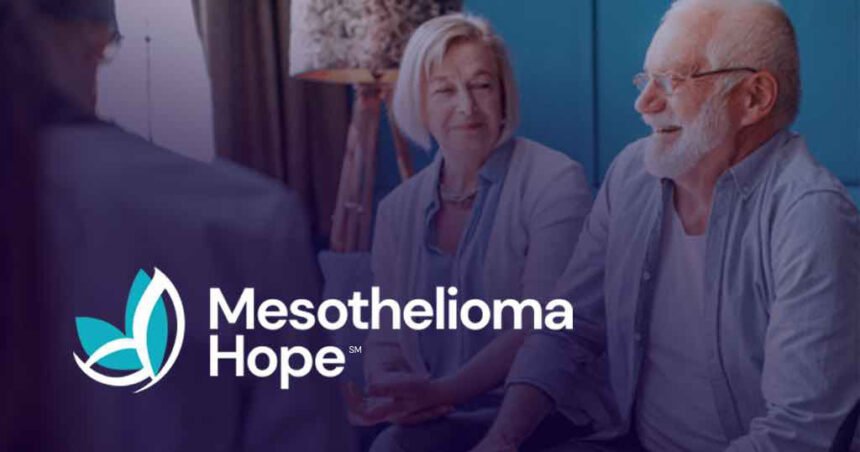Introduction: Facing the Challenges of Mesothelioma with Hope
Mesothelioma is a rare, aggressive cancer caused predominantly by exposure to asbestos. A diagnosis often feels overwhelming due to the disease’s complex nature, limited treatment options, and historically poor survival rates. However, in 2025, advancing medical research, improved treatments, and growing support networks offer real hope for individuals affected by mesothelioma.
This guide explores the current state of mesothelioma treatment, groundbreaking research developments, and the resources available to patients and families to foster hope and empowerment.
Understanding Mesothelioma Prognosis and Its Challenges
Mesothelioma typically manifests 20 to 50 years after asbestos exposure, complicating early detection. Diagnosed in advanced stages, it affects the lining of lungs, abdomen, heart, or testes, leading to severe symptoms and progressive health decline.
Survival rates have historically been low, with median survival often less than two years. However, outcomes vary based on cancer stage, cell type, patient health, and treatment access.
Advances in Mesothelioma Treatment Bringing New Hope
-
Surgery Improvements
Surgical procedures like pleurectomy/decortication (P/D) and extrapleural pneumonectomy (EPP) are refined to maximize tumor removal while preserving lung function. Experienced surgeons in specialty centers achieve better outcomes. -
Chemotherapy Regimens
Combination chemotherapy remains a standard approach, with drugs such as pemetrexed and cisplatin prolonging survival and improving quality of life. -
Radiation Therapy Innovations
Advanced radiation, including intensity-modulated radiotherapy (IMRT), targets tumors more precisely, minimizing damage to healthy tissue. -
Immunotherapy Breakthroughs
Checkpoint inhibitors and novel immunotherapies have shown promise in stimulating the immune system to attack mesothelioma cells, leading to extended survival in some patients. -
Targeted Therapies
Research into genetic and molecular targets is yielding experimental therapies designed to inhibit tumor growth selectively.
Clinical Trials: The Frontier of Hope
Numerous clinical trials explore new drugs, vaccine therapies, and gene-editing technologies aiming to improve mesothelioma treatment efficacy. Participation in trials provides patients access to cutting-edge interventions unavailable outside research settings.
Support Resources Empowering Patients and Families
-
Patient Advocacy Organizations: Groups like The Mesothelioma Center, Mesothelioma Applied Research Foundation, and Asbestos Disease Awareness Organization offer education, financial aid, and emotional support.
-
Multidisciplinary Care Teams: Collaborative teams including oncologists, nurses, social workers, and palliative care specialists focus on holistic patient well-being.
-
Support Groups and Counseling: Both in-person and online support networks provide critical psychological and peer support, enhancing coping capacity.
Living with Mesothelioma: Quality of Life and Symptom Management
While curative cures remain elusive for many, symptom management enhances life quality. Pain control, respiratory support, nutrition, and mental health care are integral components of comprehensive treatment plans. Advance care planning is also encouraged to align treatments with patient preferences.
Featured Business Listing: The Mesothelioma Center – Providing Hope and Help
The Mesothelioma Center is a leading national resource connecting patients with specialized doctors, clinical trials, and legal support to maximize hope and help for mesothelioma.
-
Website: Mesothelioma.com
-
Services: Treatment center referrals, clinical trial matching, patient education, and legal guidance.
-
Mission: Empowering individuals and families with knowledge and access to the best mesothelioma care and support in 2025.
Frequently Asked Questions About Mesothelioma Hope
Q: Is mesothelioma curable?
A: While curative outcomes are rare, early diagnosis combined with surgery, chemotherapy, and new immunotherapies can prolong life significantly.
Q: Are there new treatments available?
A: Yes, immunotherapy and targeted therapies offer new options explored in ongoing clinical trials.
Q: How can families support patients with mesothelioma?
A: Providing emotional support, assisting with medical appointments, and connecting with support groups improves patient well-being.
Read More: How Do You Get Compensation for Mesothelioma? | 2025 Legal Guide for Victims and Families
Conclusion: There Is Hope with Mesothelioma in 2025
Despite its challenges, mesothelioma today is met with unprecedented medical advancements and supportive care resources. Patients and families are no longer isolated in despair; instead, they have a pathway toward extended life, better symptom control, and enriched quality of life Is There Any Hope for Mesothelioma.
For trusted guidance and access to top mesothelioma specialists and support, visit The Mesothelioma Center and take a hopeful step forward in the fight against mesothelioma.








